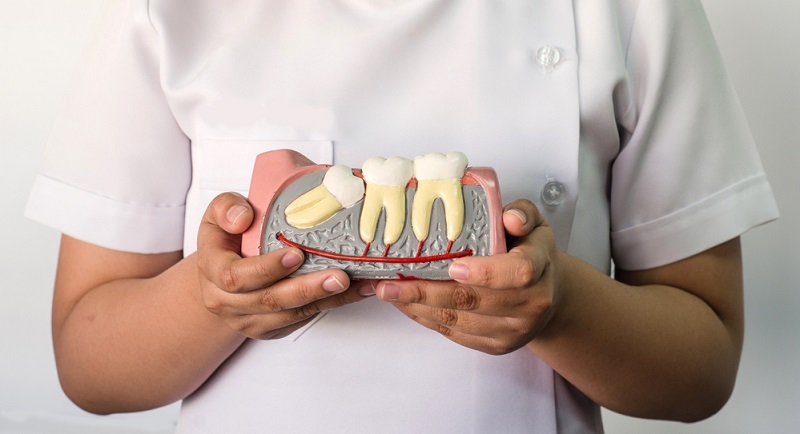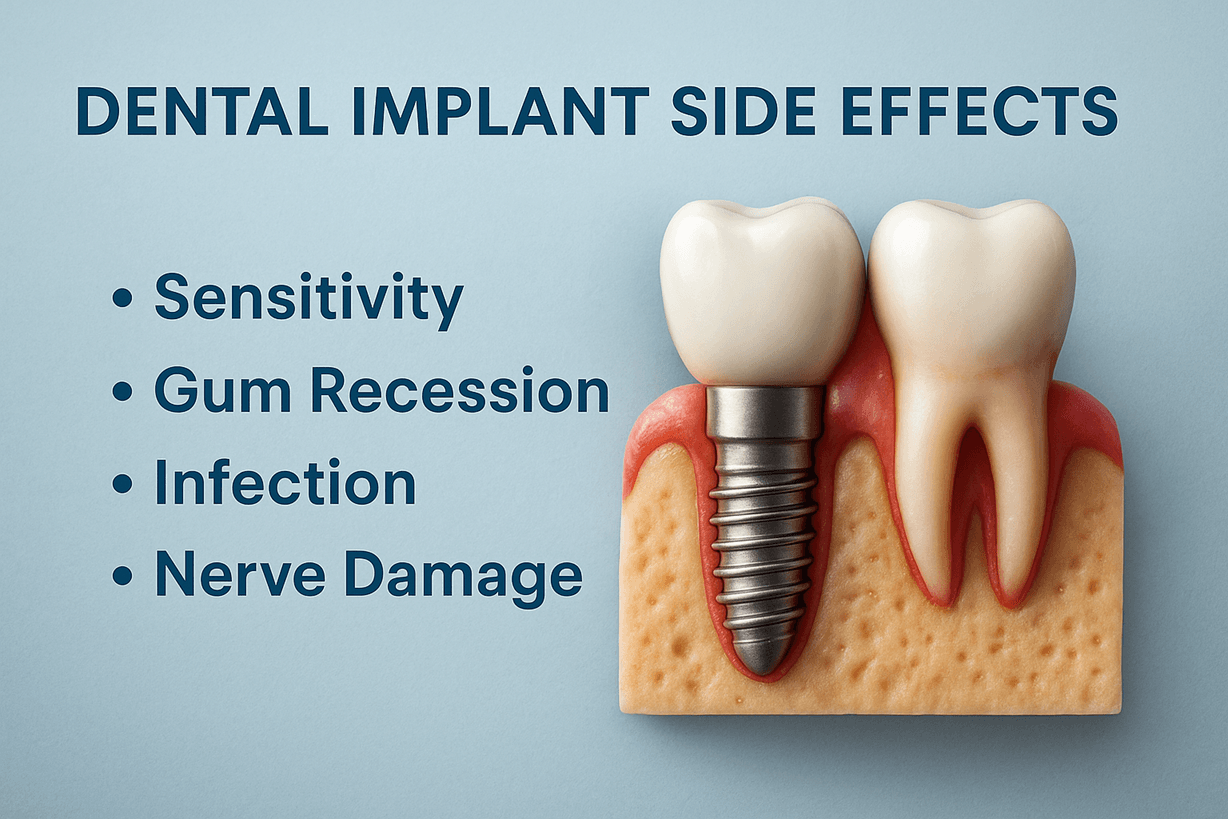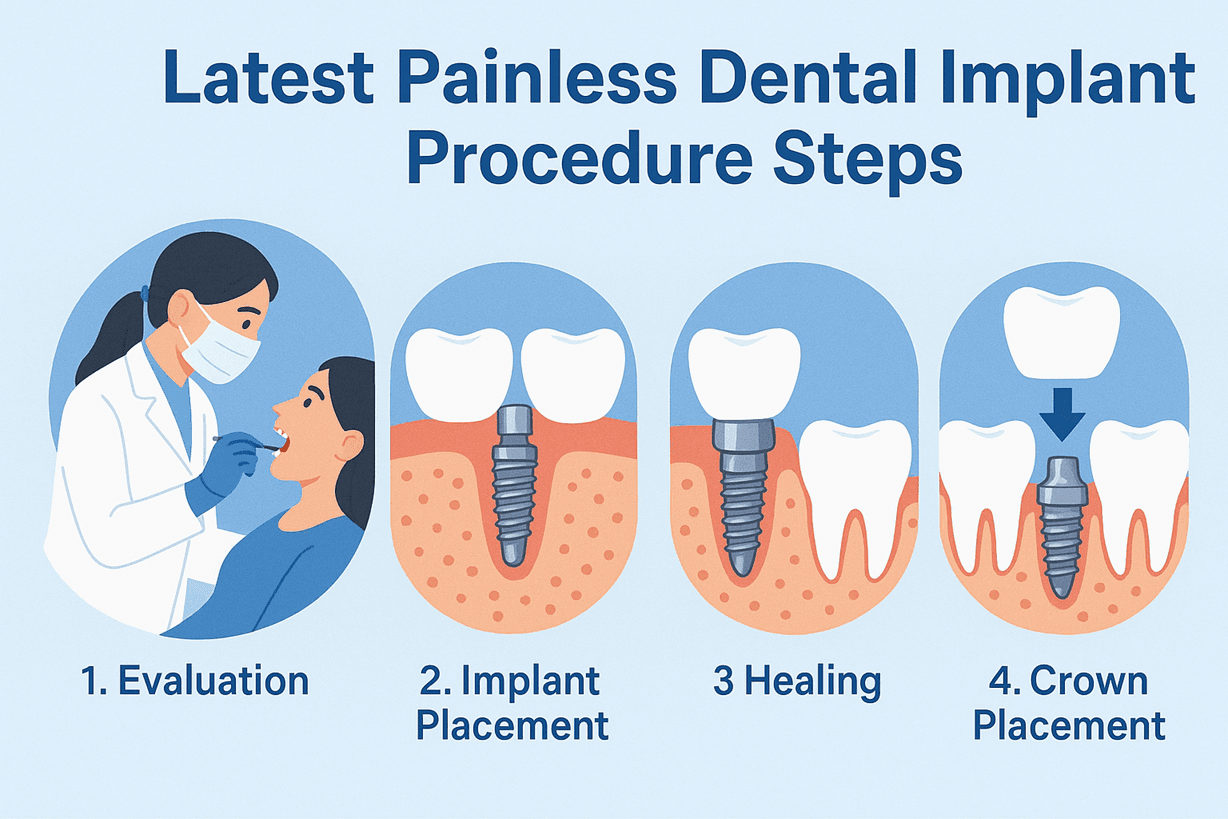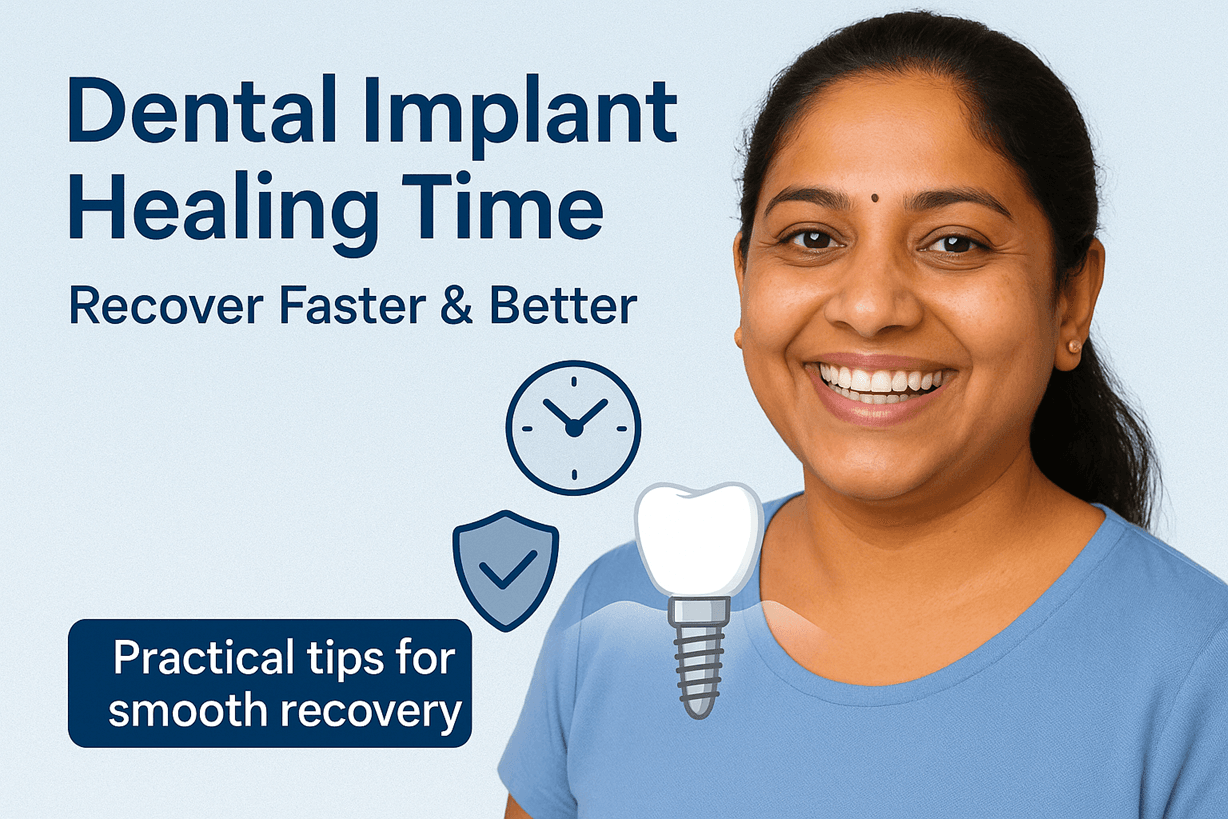Contents

Introduction to Impacted Wisdom Teeth
They are the third molars that fail to erupt fully or become trapped in the jawbone, often leading to pain and discomfort.
These teeth can cause a variety of dental problems if they remain impacted, ranging from infection to overcrowding of other teeth.
Patients need to understand the risks associated with impacted wisdom teeth so they can make an informed decision about their treatment plan.
Prevention is key, and it's best to have regular dental checkups so any potential issues can be identified early on.
Depending on how severe the impact is and how far along it has advanced, there are several methods for treating impacted wisdom teeth including extraction or surgical removal by a qualified oral surgeon or periodontist.
However, in some cases, antibiotics may be prescribed instead if there is no risk of further damage from leaving them in place.
Understanding the Impacted Wisdom Teeth Symptoms
Recognizing the symptoms of impacted wisdom teeth is crucial for maintaining good oral health. Common signs include:
Tenderness and Swelling: Pain or swelling around the affected area, particularly behind the last tooth.
Difficulty Opening Mouth: Trouble fully opening your mouth.
Bad Breath: Foul odor due to trapped food particles.
Headaches and Aches: Dull aches near the impacted tooth or headaches due to pressure on surrounding nerves.
If left untreated, these symptoms can worsen, leading to more severe pain and complications.
Severe Symptoms May Include:
Redness around the gums
Changes in taste
Neck pain from pressure on nerves
Treatment and Care:
Consult Your Dentist: Seek professional advice for diagnosis and treatment.
Extraction: The process typically involves making incisions in the gum to remove the impacted tooth.
Post-Operative Care: Follow your dentist’s instructions to prevent infection and ensure proper healing.
Diagnosing and Treating Impacted Wisdom Teeth
Diagnosing and treating impacted wisdom teeth is an important procedure for maintaining oral health.
Impacted wisdom teeth are the third set of molars that don't have enough room to grow properly, leading to various uncomfortable symptoms like pain, swelling, infection, crowding of other teeth or damage to adjacent teeth and tissue.
Diagnosis of Impacted Wisdom Teeth
To diagnose an impacted wisdom tooth, a dentist or oral surgeon will use X-rays or CT scans to assess the position of the tooth and observe any signs of decay or infection.
Depending on the severity of the condition, treatment may involve removing only part of the tooth or extracting it in its entirety.
Treating the Impacted Wisdom Teeth
Pre-Extraction Care:
Antibiotics: If there's an infection, your dentist may prescribe antibiotics before the tooth extraction.
Post-Extraction Care:
Managing Bleeding: Minor bleeding can be controlled with gauze and ice packs.
Anesthesia Options: If there's limited space in the jaw, surgery may require general anesthesia for patient comfort. Local anesthesia might be insufficient for complex cases.
Discomfort: Post-extraction pain is usually mild and can be managed with over-the-counter pain relievers like acetaminophen or ibuprofen.
Postoperative Instructions:
- Follow Instructions: Adhere to your dentist’s guidance to ensure proper healing.
- Dietary Restrictions: Avoid hard foods until your mouth has healed to prevent complications and promote recovery.
The Risks of Neglecting an Impacted Wisdom Teeth Removal
Neglecting to remove impacted wisdom teeth can lead to significant health issues and severe pain. Here are the main risks:
Overcrowding and Damage: Impacted wisdom teeth can crowd the mouth, damaging adjacent teeth, gums, and the jawbone. This can increase the risk of gum disease due to trapped food and bacteria.
Infections: Untreated impacted teeth can lead to infections in surrounding tissues, potentially requiring antibiotics or surgery.
Cysts Formation: Impacted wisdom teeth can cause cysts that damage nearby teeth and bone. Untreated cysts may need complex treatments like marsupialization or enucleation.
Permanent Nerve Damage: Proximity to jaw nerves increases the risk of permanent nerve damage if the impacted tooth is left untreated.
When Surgery is Necessary to Remove an Impacted Wisdom Tooth
Surgery to remove an impacted wisdom tooth is considered based on:
Severity of Impaction: Assessment through dental exams and radiographs.
Location and Space: Evaluate tooth position, available space, and condition of adjacent structures.
General Health and Risks: Considers overall health and surgical risks.
An experienced dentist or oral surgeon will determine the need for surgery and may recommend orthodontic repositioning if there's insufficient space.
The final decision on the procedure will be tailored to each patient’s specific situation.
Conclusion
In conclusion, extracting impacted wisdom teeth may serve as a necessary solution for preventing further pain or damage caused by the condition.
However, it should not be taken lightly due to the potential risks involved with any type of surgical procedure including infection or dry socket complications which can lead to long-term issues.
If not treated properly or in time, it can lead to other potentially dangerous outcomes like misalignment of teeth, severe infections, bad breath, or even swelling, severe headaches, and more.
Frequently Asked Questions
How painful are impacted wisdom teeth?
Impacted wisdom teeth can be a source of considerable pain and discomfort.
The degree of pain associated with an impacted wisdom tooth can vary depending on the individual, the severity of the impaction, and whether or not it is causing other complications.
In general, the pain associated with an impacted wisdom tooth may range from mild to severe.
When a wisdom tooth becomes impacted, its inability to fully erupt through the gums causes pressure on surrounding teeth and tissue.
This pressure can cause swelling and soreness in the mouth as well as headaches and jaw pain and these are some of the impacted teeth symptoms.
An infected or abscessed wisdom tooth may also cause throbbing pain that radiates outward from the back of the jaw. Severely impacted teeth may require surgical extraction which could result in more intense post-operative discomfort.
Fortunately, if you are experiencing any sort of discomfort related to wisdom teeth problems, there are several methods available to help alleviate your symptoms such as over-the-counter medications, warm saltwater rinses, and prescription antibiotics when needed.
It is important to follow up with your dentist regularly so they can properly assess any dental issues you might be having before they become too painful or unmanageable.
Are impacted wisdom teeth bad?
In the rarest of the rarest cases, it is not. Initially, there may be some discomfort but after a point, the tooth or teeth grow out and remain like any other normal teeth.
But in some cases, there is a good chance of severe swelling, inflammation, irritation, and severe pain in the jaw or even headaches.
But on the other hand, if your tooth or teeth are causing you extreme discomfort and pain, you have to get it extracted but surgically. Your dentist will likely refer you to an oral surgeon who specializes in this type of procedure.
Surgery typically involves making small incisions into your gums so that the surgeon can access the tooth and then remove it from its socket without damaging any surrounding tissue.
Recovery time varies depending on how complex the procedure was but generally speaking, most people resume their normal activities within a few days after surgery.
Taking proper care of yourself post-surgery including eating soft foods and avoiding strenuous activities will help ensure a successful outcome from having your impacted wisdom teeth removed.
Can I leave impacted wisdom teeth alone?
Ideally not. This is because, if there is an infection developing, it can spiral into something far worse.
It can cause pain, a terrible infection which can affect the other teeth or something far worse like the formation of cysts.
How do dentists remove impacted wisdom teeth?
When removing impacted wisdom teeth, dentists will typically begin by administering a local anaesthetic or sedative so that the patient does not feel any discomfort during the procedure.
Next, they may use specialized tools such as forceps or elevators to loosen and remove the impacted tooth from its socket in the gum.
In some cases where there is limited room for manoeuvring, dentists may need to cut away part of the bone surrounding the tooth before extracting it. Finally, stitches may be required to close up any wounds created by the extraction process.
Patients need to understand what is involved with having their impacted wisdom teeth removed so they can make an informed decision about their treatment options.
Patients should also be aware that this type of dental surgery includes risks and side effects such as pain and swelling afterwards; however, these can usually be managed effectively with over-the-counter medications if prescribed by their dentist.
How should I sleep with impacted wisdom teeth?
If you are living with impacted wisdom teeth, it is important to be aware of how to sleep comfortably and safely. The ideal sleeping position is on your side or back with a pillow beneath the affected area.
This will help reduce inflammation, protect against further complications, and promote healing. You may also find it beneficial to use an extra pillow or neck roll for additional support and comfort.
Additionally, avoiding hard surfaces such as wood or concrete can help prevent the pressure of these areas from exacerbating any pain or discomfort caused by impacted wisdom teeth.
To further ensure that you get good rest while living with impacted wisdom teeth, it is recommended that you avoid sleeping on your stomach at all costs.
Sleeping in this position can put a strain on the jaw muscles and increase swelling around the affected area which could lead to more serious complications down the line if left untreated.
Additionally, make sure to wear comfortable clothes made of breathable materials so that there is no excess pressure placed on your face or jaw during sleep time.
Finally, some people may find relief through using cold compresses in conjunction with over-the-counter medications before bedtime to ease any associated pain or discomfort brought about by impacted wisdom teeth.
It is also important to note that dental splints such as night guards can be used while sleeping if needed to keep your mouth in optimal alignment and reduce stress on the affected tooth/teeth.
With proper care and attention paid towards managing impacted wisdom teeth while sleeping, you should be able to find a better night’s rest without compromising your overall health and well-being in the process!



